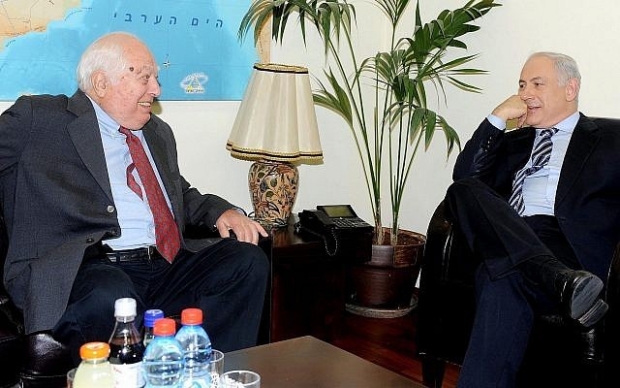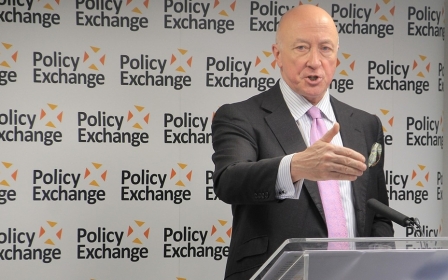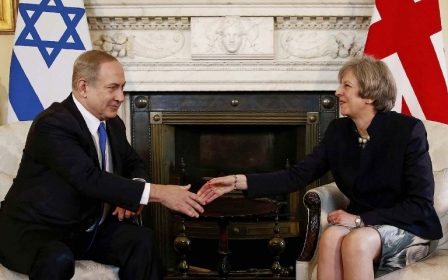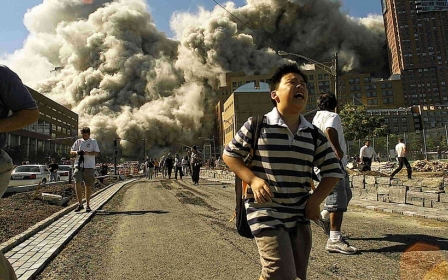Do not weep for Bernard Lewis, high priest of war in the Middle East
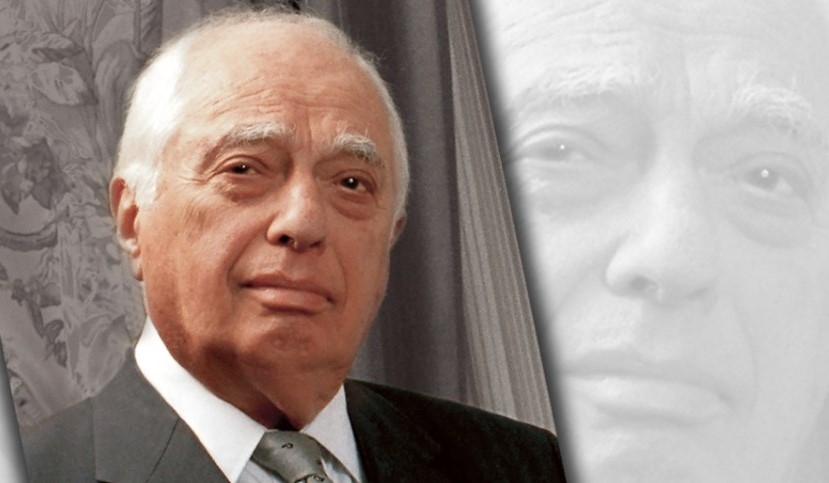
It is customary to speak well of the dead. I refuse to observe this convention in the case of Bernard Lewis, a historian of Islam and the Middle East, who died over the weekend aged 101. I can think of no modern scholar who has perpetrated half as much harm. Lewis was intellectually a towering figure. This meant he had the ability to do great good.
Instead, he became the intellectual high priest for the calamitous wars which have caused such bloodshed across the Middle East, while doing unlimited damage to the standing of the United States.
A racist approach
Lewis's influence continues to this day. US Secretary of State and former CIA boss Mike Pompeo declared on 20 May: "I owe a great deal of my understanding of the Middle East to his work." Regime change in Iran was one of Bernard Lewis’s political projects and, inspired by his intellectual hero, Pompeo may be about to have a go at achieving it.
We have been here before. Lewis was the moral leader of the small group of intellectuals who argued for the Iraq invasion of 2003. Within days of the attacks on the World Trade Centre, he was agitating for the downfall of Saddam Hussein, expressing opinions which delighted the neoconservatives pressing for military action in the Middle East.
Lewis's mistake over Iraq was just one manifestation of a hideous world view which included a nakedly racist approach to the Middle East
He later deceitfully claimed that he had been against the Iraq invasion. This is rubbish. He was directly involved. Even before 9/11 he'd pressed for regime change in Iraq, and after the attack he seized his chance. Lewis was there when the Pentagon's Defense Policy Board held its notorious meeting to consider military action against Iraq at the end of September 2001.
Lewis told the board that the United States should support so-called democratic reformers in the Middle East, "such as my friend here, Ahmed Chalabi". As one of the world's leading experts on Islam, Bernard Lewis had no excuse for falling for Chalabi, the charlatan who led the Iraqi National Congress.
Yet he did - hook line and sinker - with terrible consequences that the Middle East lives with to this day.
Lewis's mistake over Iraq was just one manifestation of a hideous world view that included a nakedly racist approach to the Middle East. He told Vice President Dick Cheney: "I believe that one of the things you've got to do to Arabs is hit them between the eyes with a big stick. They respect power."
Intellectual justification for war
Lewis expanded on this view in a series of books and lectures that painted a backwards-looking Muslim world seething with hatred against a modernising and virtuous West. It was him, and not Samuel Huntington, who coined the phrase "clash of civilisations".
"We are facing a mood and a movement far transcending the level of issues and policies and the governments that pursue them," observed Lewis in 1990, adding: "This is no less than a clash of civilisations, the perhaps irrational but surely historic reaction of an ancient rival against our Judeo-Christian heritage, our secular present, and the worldwide expansion of both."
The view that Islam and the West are embroiled in an existential battle for survival has proved hugely influential on both sides of the Atlantic. It shapes official thinking to this day
This view that Islam and the West are embroiled in an existential battle for survival has proved hugely influential on both sides of the Atlantic. It shapes official thinking to this day. Yet it is laden with contradictions. If the world is facing a war of civilisations, why do states remain the powerful actors in world affairs? If Islam is at war with the West, then why are the large Islamic states (Egypt, Malaysia, Turkey, Saudi Arabia, etc) for the most part Western allies?
A propagandist against Islam
Lewis was also guilty of a disastrous intellectual reductionism. To put it mildly, the world's estimated 1.8 billion Muslims do not all think the same. Lewis often wrote as if they did. No one person can or should be blamed for all the death and destruction we are witnessing in the Middle East. But Lewis bears his share because he provided the intellectual and moral justification for bigotry and war.
Not that you would know this from reading today's newspapers. The Wall Street Journal, The Times, The Daily Telegraph and many other outlets carry long obituaries full of praise for one of the great sages of our age.
More than 30 years ago Lewis was engaged in a furious series of exchanges with the Palestinian literary critic Edward Said.
Both great scholars struck heavy blows in this debate, but I believe that Said was onto something important when he argued that "Lewis simply cannot deal with the diversity of Muslim, much less human life, because it is closed to him as something foreign, radically different, and other."
At the heart of Said's attack on Lewis was the assertion that he was less an objective scholar and more a propagandist against Islam and the Arab world. The controversy still rages but my guess is that history will agree that Said was right. In the meantime, as another war looms again in the Middle East, this time with Iran, Lewis's influence and standing remains as high as ever.
- Peter Oborne won best commentary/blogging in 2017 and was named freelancer of the year in 2016 at the Online Media Awards for articles he wrote for Middle East Eye. He also was British Press Awards Columnist of the Year 2013. He resigned as chief political columnist of the Daily Telegraph in 2015. His books include The Triumph of the Political Class, The Rise of Political Lying, and Why the West is Wrong about Nuclear Iran.
The views expressed in this article belong to the author and do not necessarily reflect the editorial policy of Middle East Eye.
Photo: Bernard Lewis Bernard Lewis (Portrait: Alan Kolc / Princeton University)
New MEE newsletter: Jerusalem Dispatch
Sign up to get the latest insights and analysis on Israel-Palestine, alongside Turkey Unpacked and other MEE newsletters
Middle East Eye delivers independent and unrivalled coverage and analysis of the Middle East, North Africa and beyond. To learn more about republishing this content and the associated fees, please fill out this form. More about MEE can be found here.



